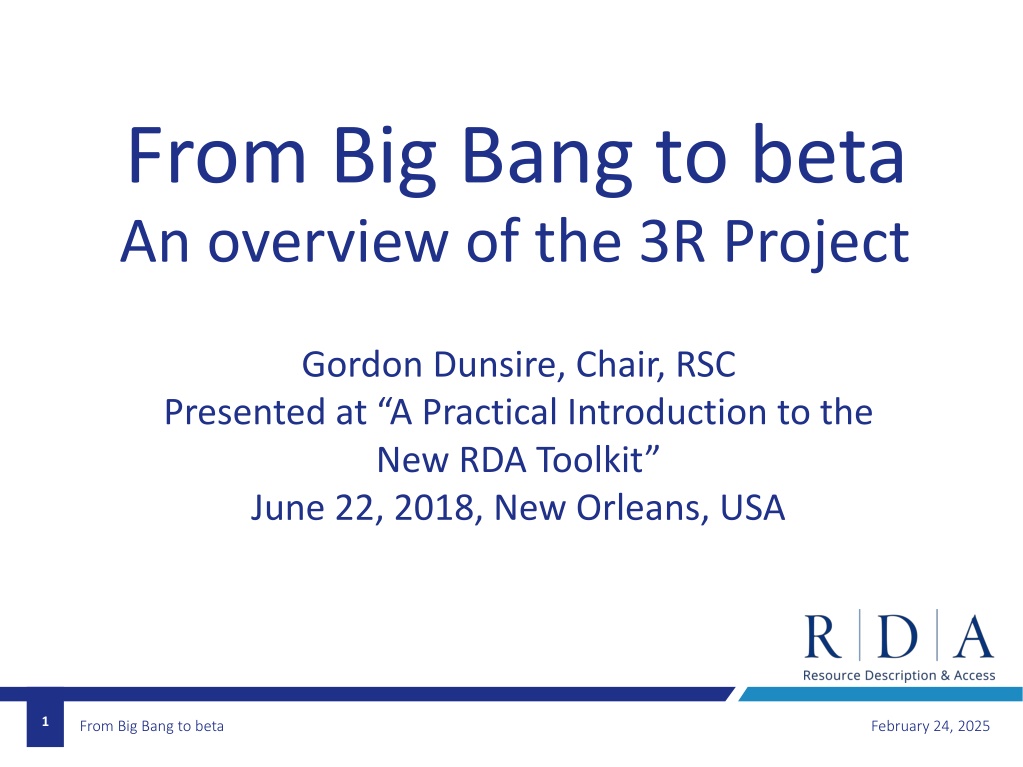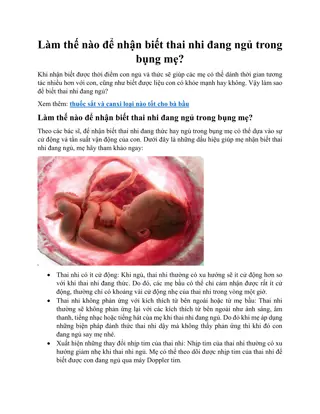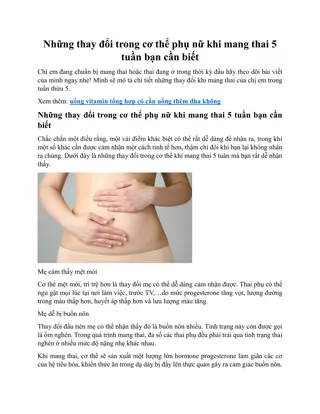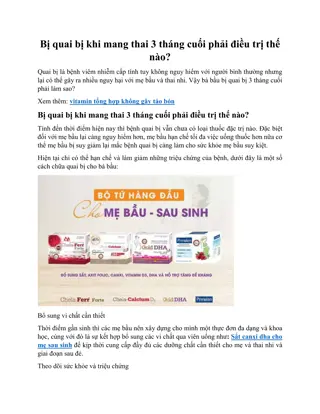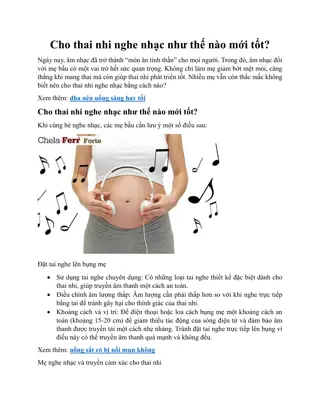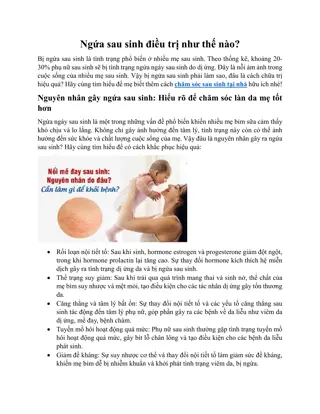Overview of the 3R Project: Impact and Elements
This overview delves into the Impact of LRM, internationalization effects, and community impacts in the 3R Project. It discusses the creation process, relationship elements, the numbers of entities, and element recording methods.
Download Presentation

Please find below an Image/Link to download the presentation.
The content on the website is provided AS IS for your information and personal use only. It may not be sold, licensed, or shared on other websites without obtaining consent from the author.If you encounter any issues during the download, it is possible that the publisher has removed the file from their server.
You are allowed to download the files provided on this website for personal or commercial use, subject to the condition that they are used lawfully. All files are the property of their respective owners.
The content on the website is provided AS IS for your information and personal use only. It may not be sold, licensed, or shared on other websites without obtaining consent from the author.
E N D
Presentation Transcript
From Big Bang to beta An overview of the 3R Project Gordon Dunsire, Chair, RSC Presented at A Practical Introduction to the New RDA Toolkit June 22, 2018, New Orleans, USA 1 From Big Bang to beta February 24, 2025
Impact of LRM IFLA Library Reference Model (2017) Agent, Collective Agent, Nomen, Place, Timespan entities Shift from attribute to relationship elements Aggregate manifestations & serial works 2 From Big Bang to beta February 24, 2025
Impact of internationalization Different cataloguing practices Different authority files and vocabularies No one way of describing an entity Many ways, many choices New elements for access points 3 From Big Bang to beta February 24, 2025
Impact of other communities Special library materials New elements and vocabularies Archive and museum communities Collections, curation, provenance Linked data communities IRI recording method, vocabulary notation 4 From Big Bang to beta February 24, 2025
The Big Bang One-time creation of all element files Automated generation using RDA Registry data and template for standard sections Specification refined over several test runs 5 From Big Bang to beta February 24, 2025
The Wee Bang One-time overlay of standard instructions for relationship elements (ex-designators) Template uses boiler-plate guidance and instructions Refined with re-runs of the wee bang 6 From Big Bang to beta February 24, 2025
The numbers 1700+ elements 13 entities Work Expression Manifestation Item Place Timespan RDA Entity 388 291 282 70 45 54 27 Agent Person Collective Agent Corporate Body Family Nomen 175 85 34 84 46 169 7 From Big Bang to beta February 24, 2025
Focus on elements Each element has own page Elements grouped by entity chapter Element reference section Element recording methods Navigation to nearest neighbour elements 8 From Big Bang to beta February 24, 2025
Navigation Search Exact match, keywords Entity page elements list Alphabetical browse; active filter Relationship matrix Hierarchical browse; excludes attributes Glossary Alphabetical browse 9 From Big Bang to beta February 24, 2025
Optional instructions Many instructions now clearly indicated as options Nothing is (or was) mandatory Except nomen string Choice of recording method Depends on data application Core less useful at global level 10 From Big Bang to beta February 24, 2025
Application profiles What elements must be recorded? What elements should be recorded? What elements may be repeated? What vocabularies are used? What recording methods are used? Multiple ways: bookmarks, policy statements, workflows, external documents 11 From Big Bang to beta February 24, 2025
Data provenance Who made the metadata statement? When was it stated? Where did the values come from? What standards were applied? The trick: treat each statement or set as a work Then apply RDA 12 From Big Bang to beta February 24, 2025
Instruction display No options nested within options Exceptions and alternatives are just other options Structured display For condition condition do action Decision points 13 From Big Bang to beta February 24, 2025
Shredding = Reformatting current instructions New element structure Explicit recording methods Flatten nested options, exceptions, alternatives Layout of for do and if then conditions Separation of transcription, recording, and access point construction 14 From Big Bang to beta February 24, 2025
Elements with new labels Element label changed for consistency Old label retained as alternative label = see reference in Glossary Example: publisher s name see name of publisher 15 From Big Bang to beta February 24, 2025
Soft deprecation Element is same as a recording method of another element Element retained, but other element and method is a preferred option Example: Details of prefer root element with unstructured description Non-preferred elements will be reviewed down the line 16 From Big Bang to beta February 24, 2025
Whats left to do? Editing for clarity and consistency (more shredding) Distinguishing instructions for name/title and access point elements New instructions for aggregates and serials Tweaks, refinements, feedback We want to hear from you 17 From Big Bang to beta February 24, 2025
The product A package of data elements, guidelines, and instructions for creating library and cultural heritage resource metadata that are well-formed according to international models for user-focussed linked data applications. A package that meets the resource description and access needs of the 21st century 18 From Big Bang to beta February 24, 2025
